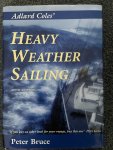zoidberg
Well-known member
I have a clutch of the earlier editions. 'Worth their weight in gold'....
However, the new 8th Edition poses a conundrum. Ought I to purchase, for myself, the £36.25 hardback option or the £23.39 Kindle Edition.
Who has read it and can attest to new 'value for money' we didn't have before...?
However, the new 8th Edition poses a conundrum. Ought I to purchase, for myself, the £36.25 hardback option or the £23.39 Kindle Edition.
Who has read it and can attest to new 'value for money' we didn't have before...?

